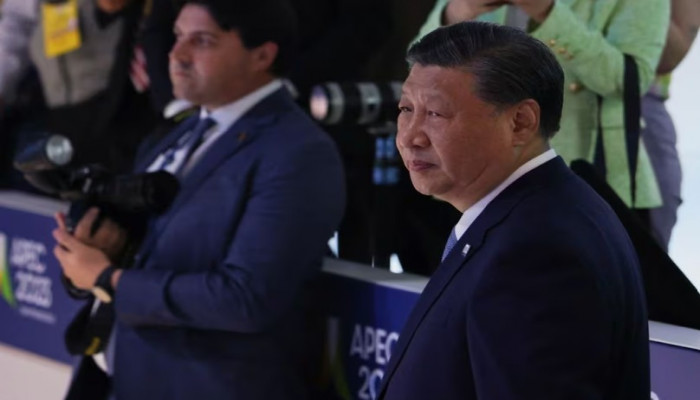China and Vietnam set to forge a 'Shared Future' despite historical differences
- In Reports
- 07:11 PM, Dec 12, 2023
- Myind Staff
China's President Xi Jinping embarked on his first state visit to Vietnam in six years, aiming to enhance ties between the communist neighbors amid Hanoi's deepening diplomatic relations with Western countries.
The visit follows United States President Joe Biden's trip to Vietnam three months ago, highlighting the competition for influence in the Southeast Asian nation between major powers. Despite historical tensions and disputes in the South China Sea, China and Vietnam, expressed a mutual desire to strengthen ties and forge a "shared future" community, just three months after Hanoi upgraded its formal relations with the United States.
During his first visit to Vietnam in six years, Chinese President Xi Jinping and Hanoi signed 37 cooperation deals. This development is regarded as a success of Vietnam's "Bamboo diplomacy" amid the ongoing competition for influence between China and the United States.
Following China's initiative, Vietnam has agreed to "support the initiative of building a shared future community for humankind," as stated in a joint statement presented to reporters.
Diplomats from China and Vietnam engaged in lengthy discussions over the use of the phrase "shared future," with Hanoi initially hesitant but eventually accepting the term. In Chinese, it translates to "common destiny," while its English and Vietnamese translations as "common future" may be seen as less assertive.
Despite an upgrade in diplomatic ties, the symbolic gesture does not diminish Vietnam's deep mistrust of China, especially regarding territorial claims in the South China Sea. Economic ties persist, but historical conflicts remain, and a memorandum of understanding for joint patrols in the Tonkin Gulf signals a potential de-escalation.
The upgraded status of ties between China and Vietnam, possibly surpassing those with the United States, was accompanied by the signing of 37 cooperation deals, as reported by witnesses who viewed the signed documents. According to a Vietnamese official, the number fell short of the initial proposal of 45 deals. Notable agreements included a memorandum of understanding on cross-border rail development.
High-ranking officials from both nations advocated for enhancing a rail link between the Chinese city of Kunming and the Vietnamese port of Haiphong, passing through regions in Vietnam rich in rare earths. China's ambassador to Vietnam, Xiong Bo, stated earlier in the week that Beijing was prepared to provide grants for the development of rail connections, although the specific details of potential loans remain unclear.
The improvement of transport links holds significance for both countries. It enables Vietnam to increase exports to China, particularly in the agricultural sector, while China aims to further integrate its northern regions with the southern supply chain networks.
Chinese companies, seeking closer proximity to Western clients in Vietnam and mitigating risks from U.S.-China trade tensions, have expedited some operations in the country compared to pre-COVID levels. Strengthening rail networks facilitates the swift import of components from China for assembly in Vietnam, effectively expanding China's Belt and Road Initiative (BRI).
Hanoi metro is Vietnam's sole project with BRI loans, discreetly labeled due to anti-Chinese sentiment. Both nations agreed on the "two corridors, one belt" initiative, referring to China-backed infrastructure projects. Xi urged broader cooperation on security, connectivity, green energy, and critical minerals, including rare earths. Not all deals have been disclosed.
Image source: Al Jazeera







Comments